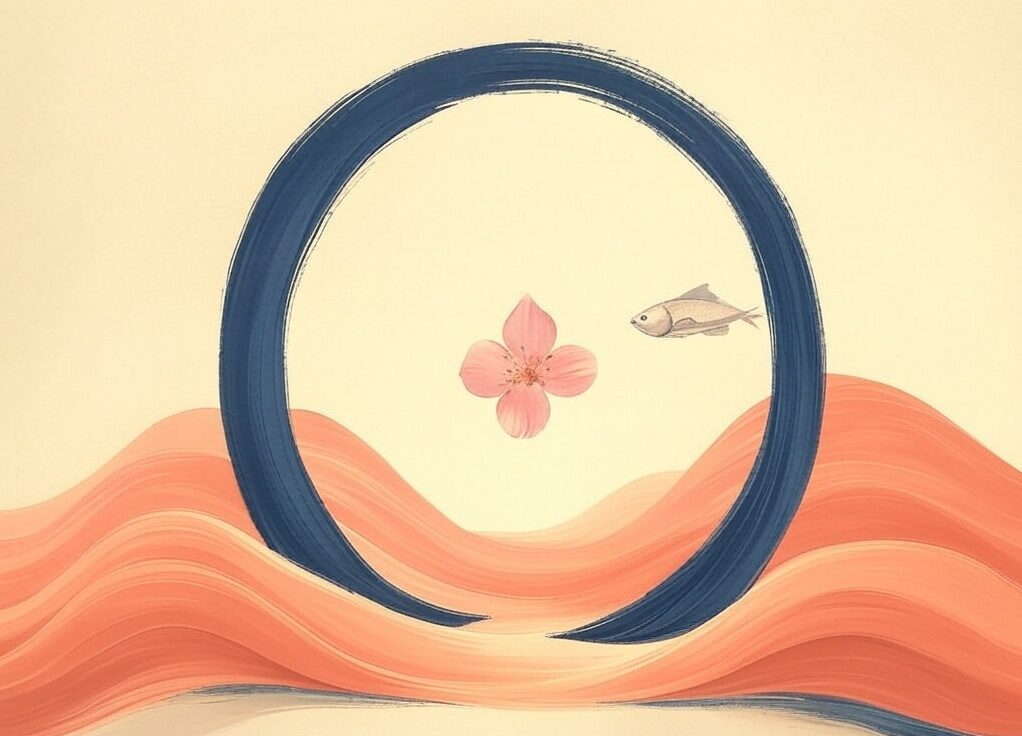
On a humid evening in Ogimi, a village in northern Okinawa, 103-year-old Uta Nakamura ladled miso soup into a bowl, her hands steady as she portioned out exactly two-thirds of what her American granddaughter might serve. Beside her, a plate of bitter melon, turmeric-laced rice, and steamed fish lay half-finished. “Hara hachi bu,” she said, patting her stomach. The phrase, rooted in Confucian teaching, translates to “Eat until you are 80% full.” For Nakamura, it’s not a diet—it’s a philosophy. “We leave room for tomorrow,” she explained.
Okinawa, a Japanese archipelago once dubbed the “Land of Immortals,” has long fascinated scientists. Its residents live longer, healthier lives than almost anyone on Earth, with five times as many centenarians as the global average. They also suffer 80% fewer heart attacks and cancers than Americans. Researchers have scrutinized their genes, their green tea, their tight-knit social circles. But increasingly, they’re fixated on hara hachi bu—and the radical idea that the secret to longevity isn’t about adding years to life, but life to years.
The practice dates back to 17th-century Okinawa, where food scarcity forced villagers to ration meals. Yet scarcity bred ingenuity. Elders developed rituals to stretch resources: chewing each bite 30 times, serving food on small plates, pausing mid-meal to sip tea and converse. Over time, these habits became cultural DNA. A 2021 study in The Lancet found Okinawans consume 1,800 calories daily—20% less than the average American—yet report higher meal satisfaction. “It’s not deprivation,” said Dr. Makoto Suzuki, a gerontologist who’s studied Okinawans for 50 years. “It’s mindful abundance.”
Contrast this with Silicon Valley, where tech bros “hack” fasting with apps that ping them to eat precisely 1,872 calories or shame them for “cheat days.” Biohackers swallow sensors to track blood sugar spikes, while startups peddle meal-replacement sludge promising “optimal nutrition.” Yet for all their precision, Americans remain trapped in a cycle of bingeing and guilt. The average U.S. adult now eats 600 more calories daily than in 1970, yet rates of diabetes and obesity have tripled. “We’ve turned eating into a math problem,” said nutritionist Dr. David Katz. “Okinawans treat it as a conversation.”
The magic of hara hachi bu lies in its simplicity. It takes 20 minutes for the stomach to signal fullness to the brain. By stopping at 80%, Okinawans avoid the drowsy, bloated aftermath of overeating. But the benefits go deeper. A 2022 study in Cell Metabolism found calorie restriction slows aging at the cellular level, reducing inflammation and oxidative stress. Lab mice on calorie-restricted diets live 30% longer. Yet Okinawans achieve this not through grim discipline but through pleasure—savoring each bite, sharing meals, prioritizing quality over quantity.
Modern science is catching up to ancient wisdom. At Washington University, researchers studied a group of New Yorkers trained in hara hachi bu. After six months, participants not only lost weight but reported sharper focus and fewer cravings. “It wasn’t about willpower,” said participant Maria Gonzalez. “It was about relearning hunger.” One man described the shock of realizing he’d spent years mistaking boredom for hunger, loneliness for appetite.
But hara hachi bu is more than a eating strategy—it’s a metaphor. In Okinawa, elders apply the principle to work, relationships, even ambition. Fishermen quit at peak productivity to mend nets. Artists leave brushstrokes incomplete, inviting the viewer’s imagination. “The 80% rule is about humility,” said historian Hiroko Takeda. “It whispers: You are not the center of the universe. Leave space for what you cannot control.”
Compare this to the West’s cult of excess. We overwork, overspend, overplan, chasing 100% in a world designed to collapse under the weight of our expectations. Burnout is a badge of honor; exhaustion, a status symbol. Yet Okinawans thrive by doing less. A 2023 study in Nature Aging found they spend 70% of their day in “low-stress leisure”—gardening, chatting, napping—compared to Americans’ 30%. “Productivity is a prison,” said Takeda. “Hara hachi bu is the key.”
The practice faces threats. Western fast food chains now dot Okinawa, and younger generations, seduced by convenience, are abandoning ancestral habits. Diabetes rates among Okinawans under 60 have quadrupled since 1985. “We’re importing your diseases,” laments Dr. Suzuki. Yet pockets of resistance remain. In Ogimi, elders host communal meals where children learn to cook traditional dishes and listen to stories of wartime scarcity. “Fullness isn’t in the stomach,” said Nakamura. “It’s in the heart.”
In Brooklyn, chef Jake Thompson runs a supper club inspired by hara hachi bu. Diners receive half-portions on handcrafted plates, with courses spaced by poetry readings. “At first, people panic,” he said. “By the third course, they’re laughing, talking, tasting. They realize they’re satisfied—they just didn’t know it.”
Frankl wrote that meaning comes not from avoiding suffering but from finding purpose within it. Hara hachi bu offers a similar lesson: fulfillment isn’t about filling voids but embracing limits. In a world obsessed with more, Okinawa’s centenarians whisper: Enough is a feast.
What if the secret to a long life isn’t living to the fullest—but knowing when to stop?

